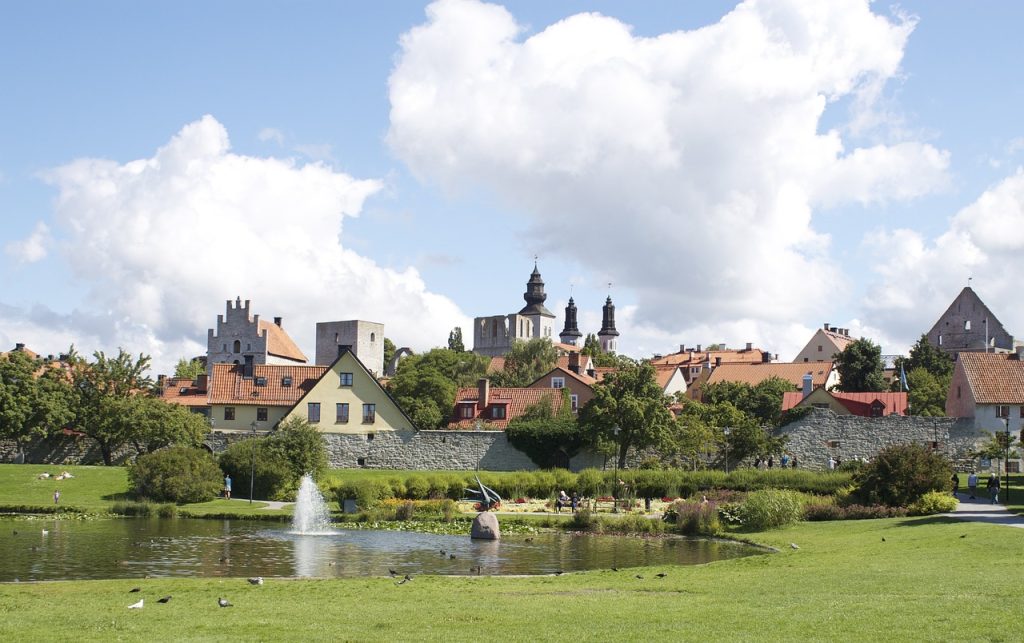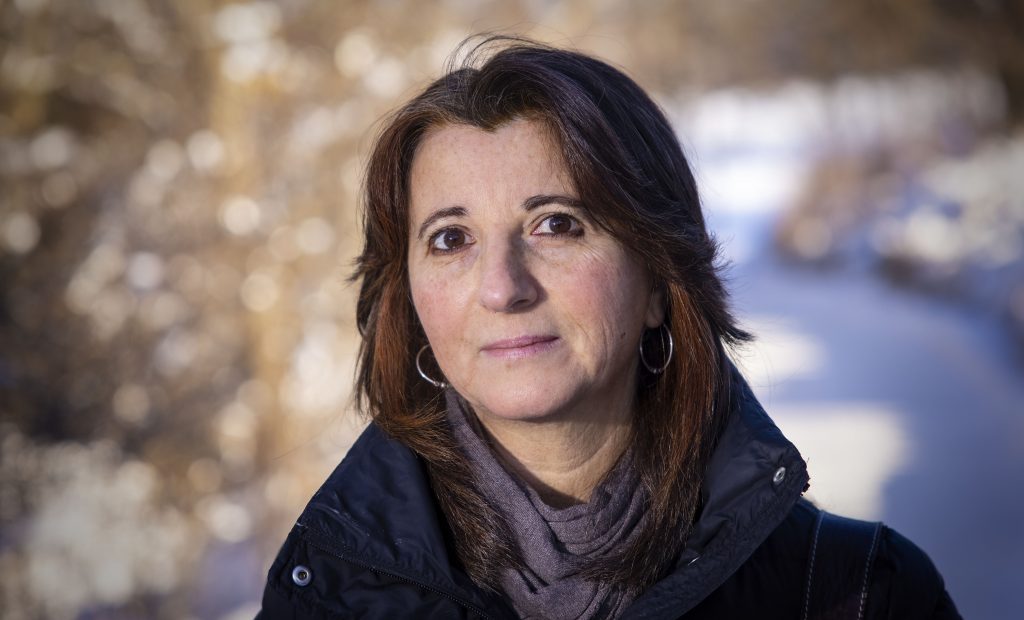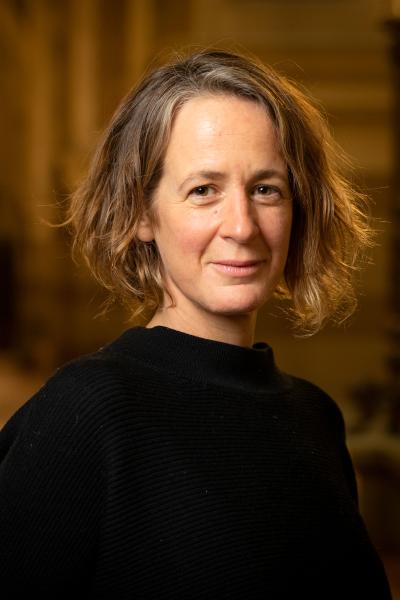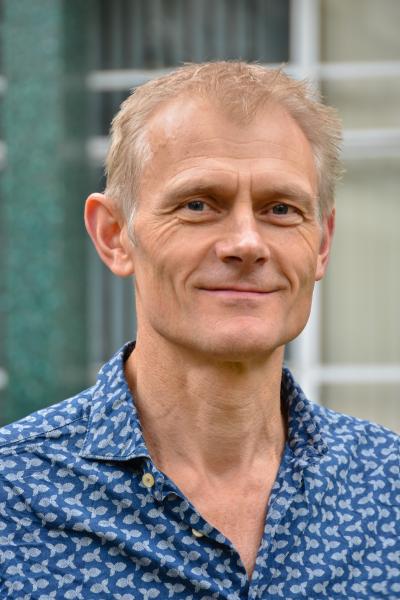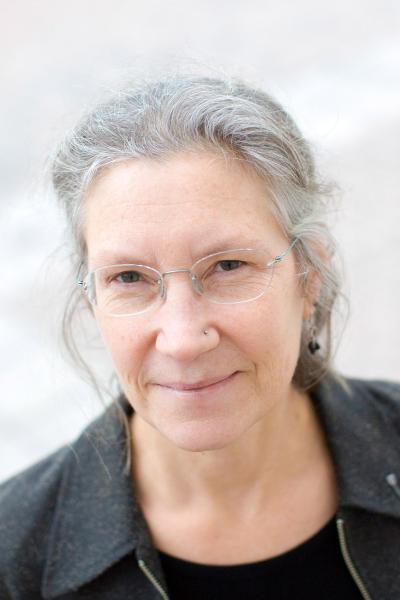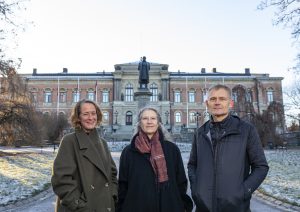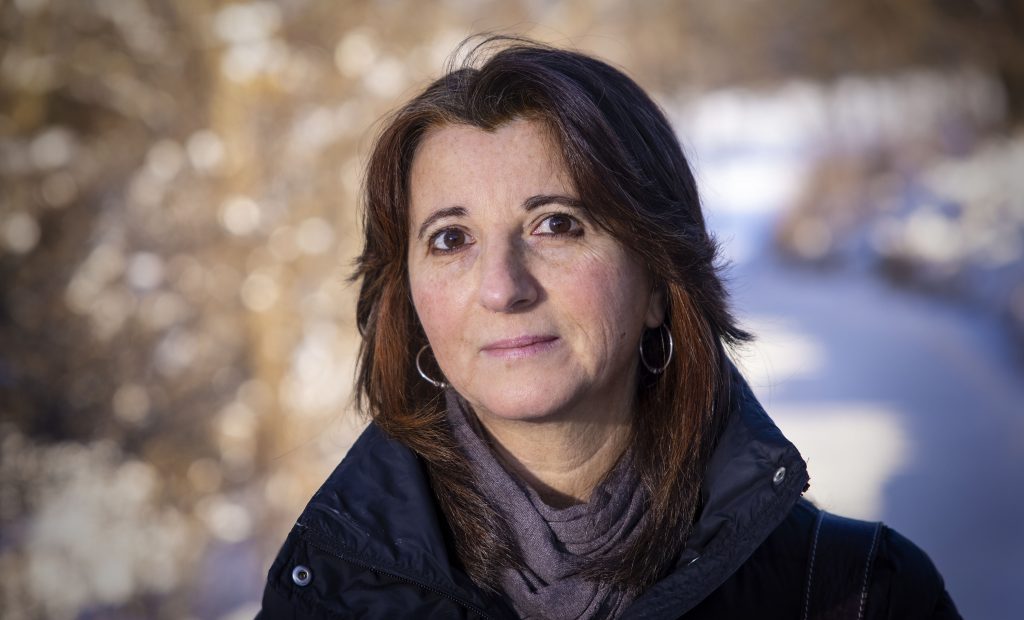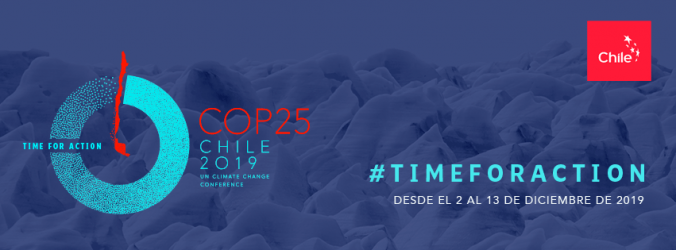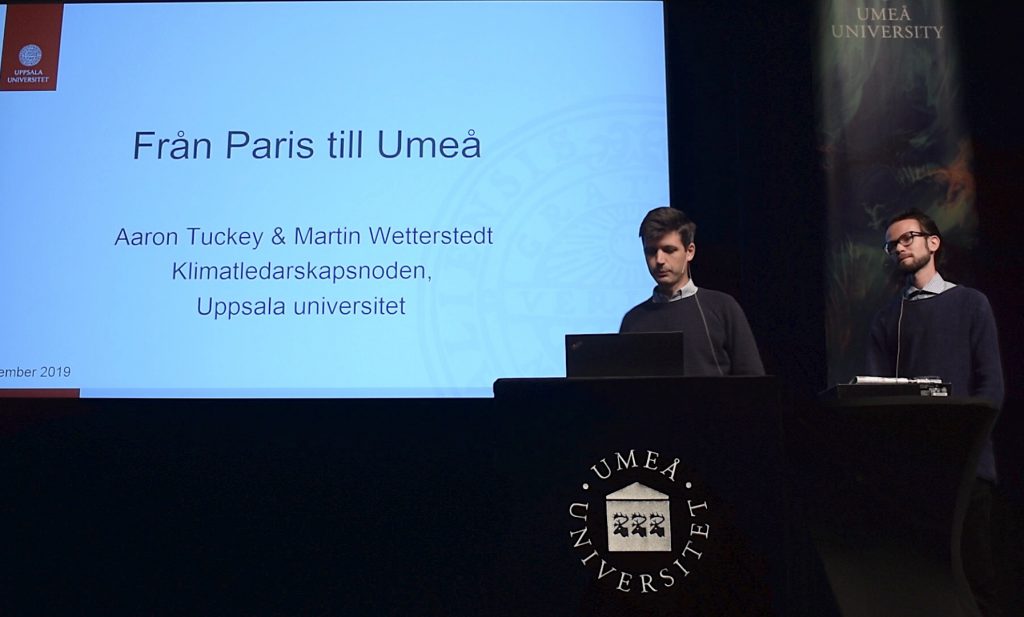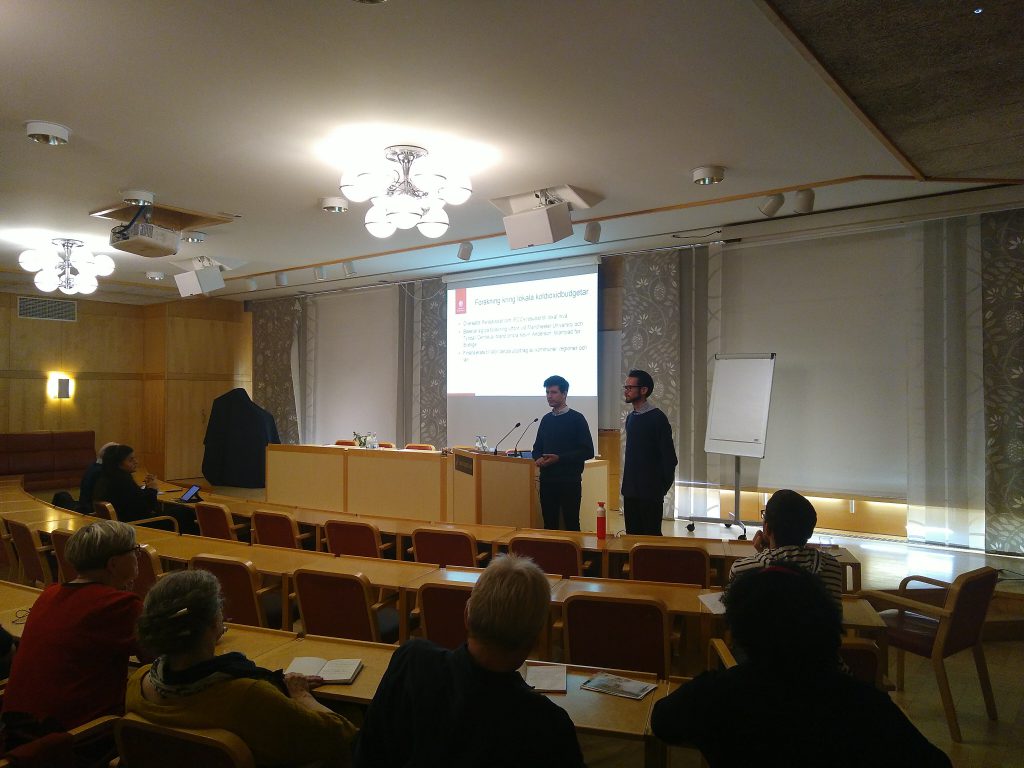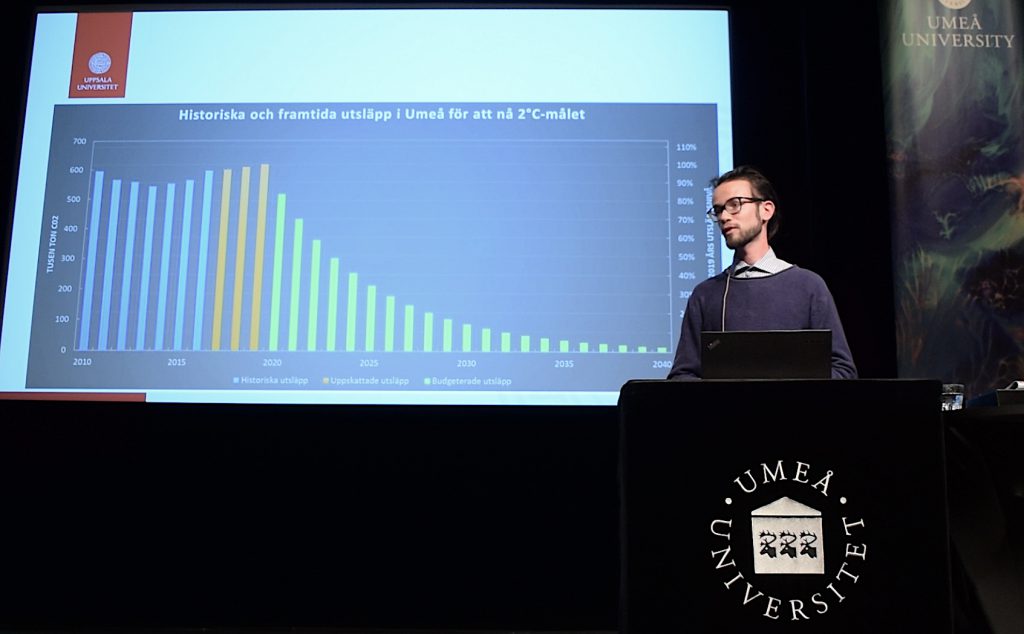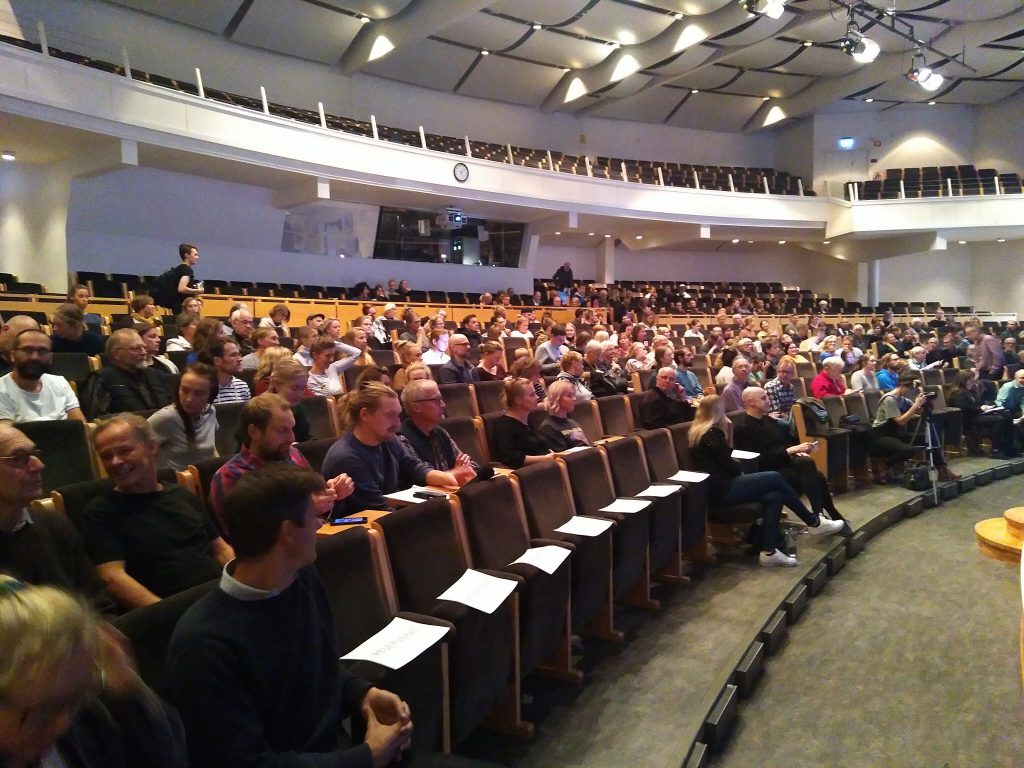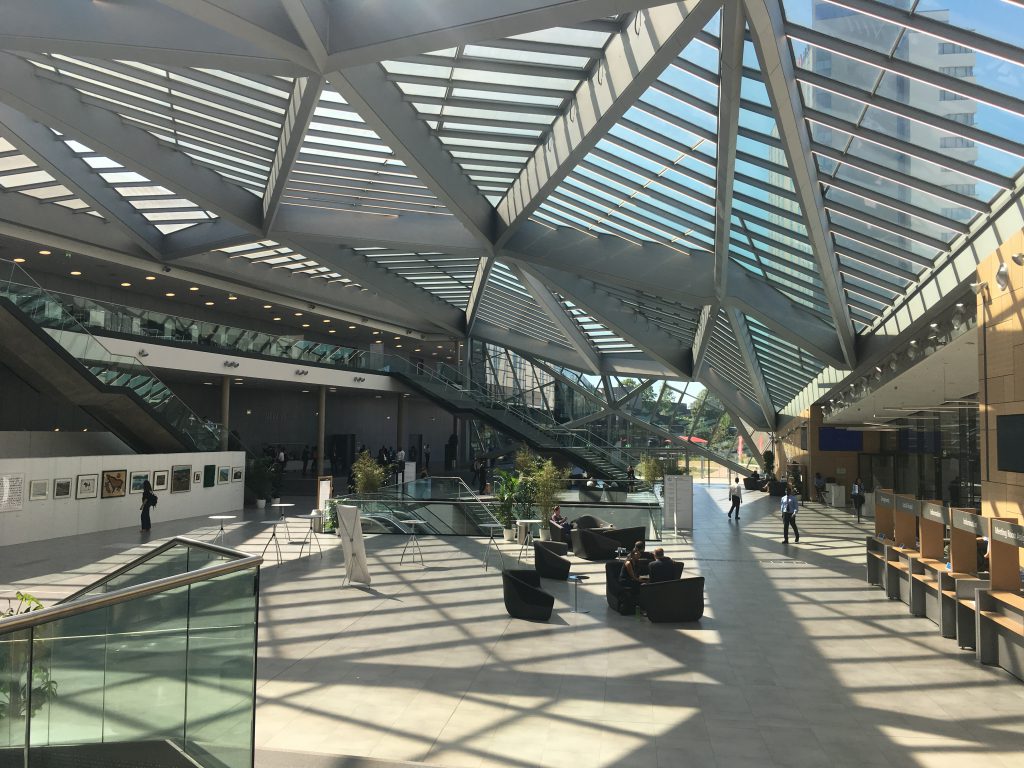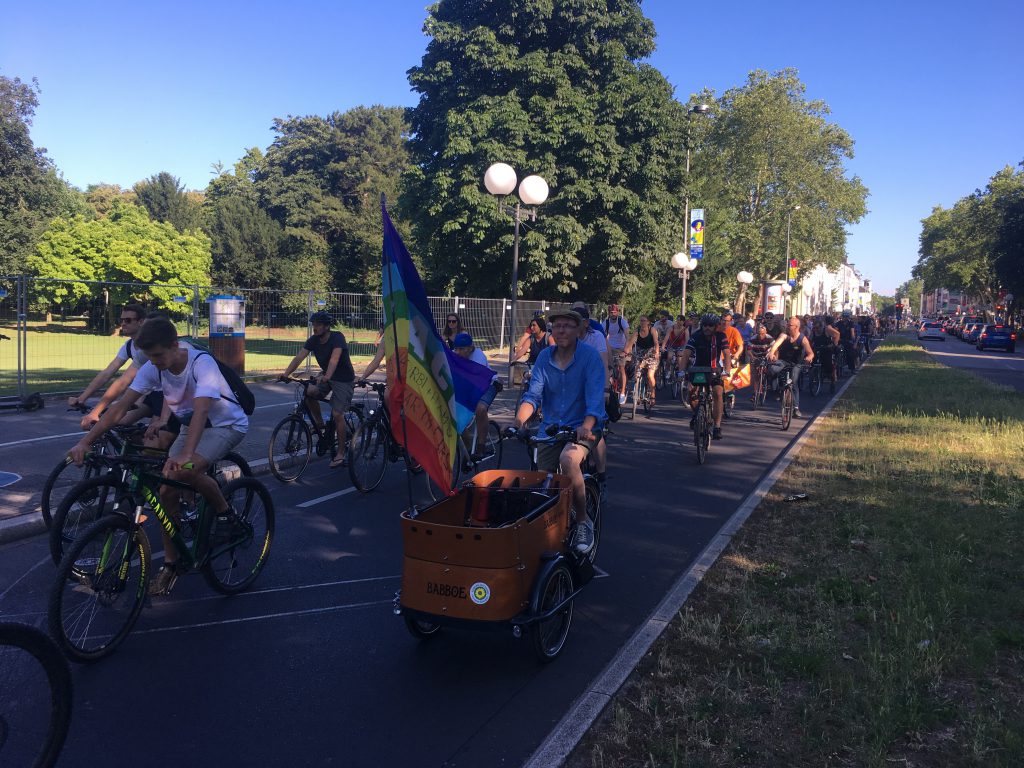I spot two familiar faces in the crowd and feel a flush of relief that I can ease my way into mingling. Carefully, I wrestle my way through the crowd of people gathered in the foyer of the conference venue, towards Christoffer Söderlund Kanarp and Sofia Bernett. Over a coffee, we share anecdotes summarising the ups and downs of work and life over the past months. Out of curiosity, I ask how the two of them know each other and Sofia says cheerfully: “Oh, we just met over lunch, we sat next to each other and it turns out we are going to the same workshops and seminars!”. We all laugh and agree that there is something special about conferences, they become venues for making new friends and reconnecting with old ones, venues for sharing and listening to new and old stories.
Our conversation is interrupted by a soft ringing sound which breaks through the chatter of people. A man gently hits a brass bell with a small wooden mallet, creating a sound not unlike the one typically made by singing bowls. It is the cue telling us that the official programme has started, upon which we make our way into the main room. The central theme of the conference is the multiple roles that stories and storytelling play in sustainability. Over the course of the two days, stories are conceptualised and thought of in multiple ways. From being seen as vehicles of shared hope, to false stories that use disinformation to delegitimise calls for climate action.
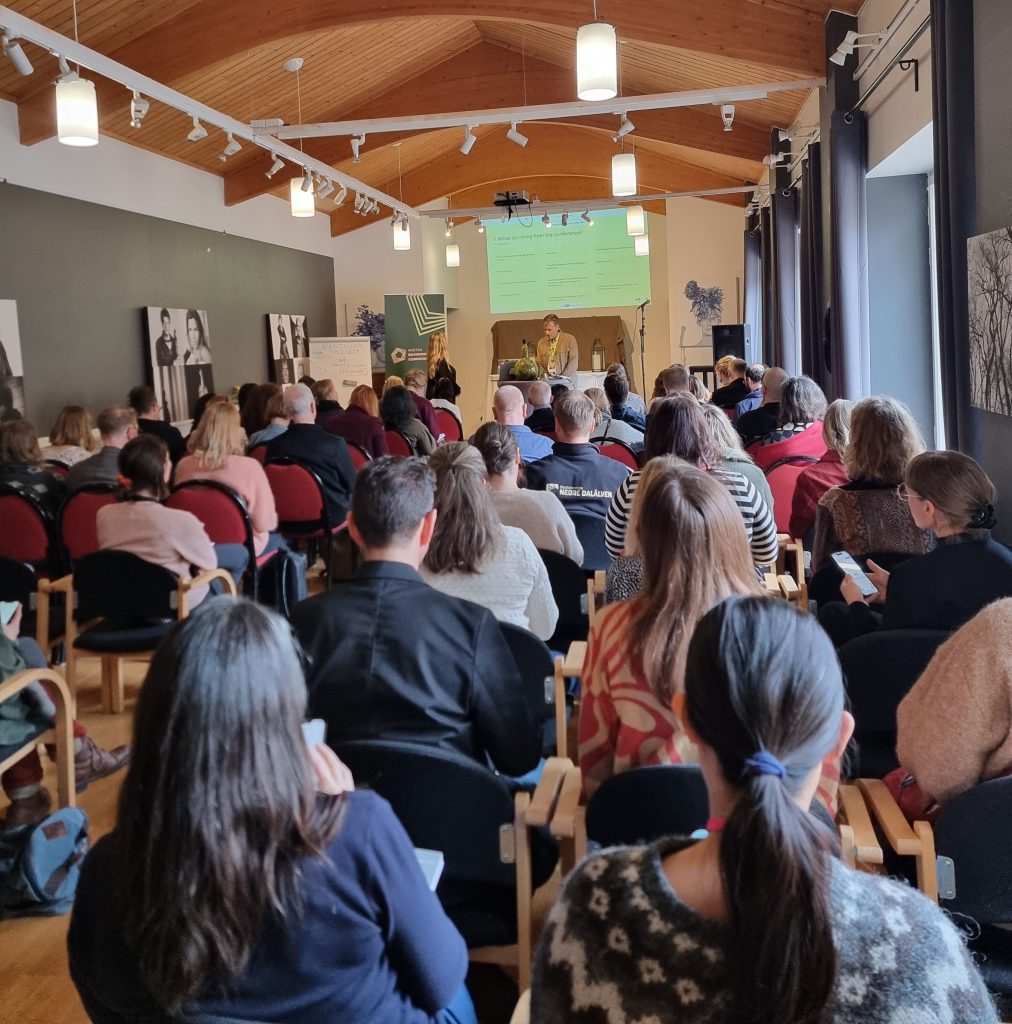
Storytelling as, and for, Sustainability
Keynote speaker Michael Wilson opens the conference and speaks with calm authority about the state of storytelling today. He claims that we live in a time of “boasterism”, and makes a distinction between boasts and stories. The distinction hints to what Wilson describes as power hierarchies in the public debate. Boasts are the opposite of stories, the tales of the powerful. Meanwhile, the experiences of the powerless are typically dismissed as “only stories”, tales not worth listening to. Thus, in a world of disinformation and distrust, Wilson argues that we need stories of hope.
“We don’t live in a time of storytelling, we live in a time of boasterism!”
Michael Wilson, Loughborough University
It is clear that he is concerned about the state of storytelling for “homo narrans”, the storytelling human. Wilson leans on thinkers such as Robin Wall Kimmerer, John Berger, and Byung-Chul Han to give flesh to his arguments. I listen to his speech from a packed room in the historic quarters of Uppsala at a conference titled “Critical and Creative Approaches to Environmental Communication – Storytelling as, and for, Sustainability”, arranged by the research programme “Mistra Environmental Communication”.
All these false stories
On day two of the conference, I attend a round table organised and chaired by Climate Change Leadership (CCL)’s Mikael Karlsson, entitled “All these false stories”. I find a place among the audience which seems eager to hear what these stories entail. The room is quiet with anticipation as Mikael presents the topic. False stories concern the way that political decision-makers lie on purpose, and construct stories to be false, explains Mikael. This includes distorting or deliberately silencing information about climate change to downplay or delegitimise climate action. The round table consists of Swedish television’s previous climate correspondent, Erika Bjerström; Tomas Hallberg, who works for the Swedish wind energy association; and Sofia Bernett, who is one of the directors of the research programme FairTrans. Three parallel experiences are told about having to navigate false stories in a time of climate change.
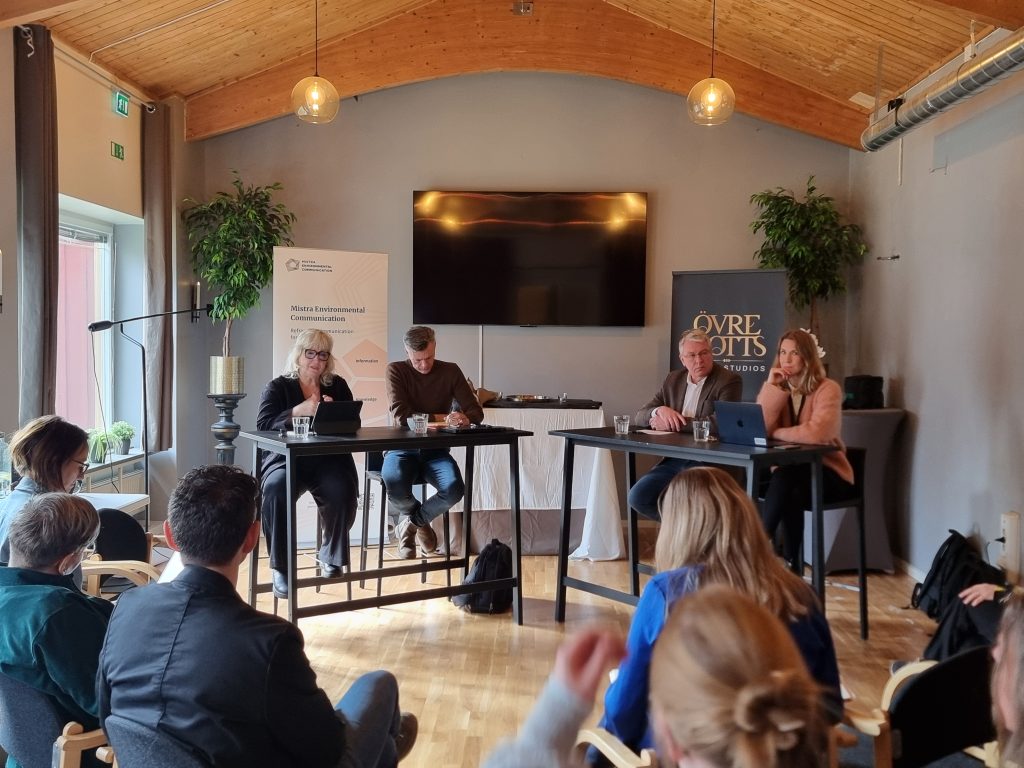
Climate journalism between a rock and a hard place
After working in journalism her entire life, reporting on climate change globally, Erika made the decision to leave the newsroom. Living under death threats and a constant questioning of the climate narrative, she lost her faith in public media. “We live in a crazy time, with a fascist in the white house who has sided with Putin, and where military expenditures clash with climate investments”, she argues. This affects the stories that the newsrooms present. Except for the scribbling of pens among the eager listeners, the room is thick with quiet concentration. Newsrooms struggle to stand up against the disinformation because climate change has become so politicised, it is essentially seen as a leftist issue, continues Erika. Climate change should be the biggest news story of our time, but newsrooms struggle to capture the seriousness of the topic. Journalists are accused of being activists, and there is a constant plea for ‘hopeful’ stories which in turn delays the story that should be told of our time’s most pressing issue.
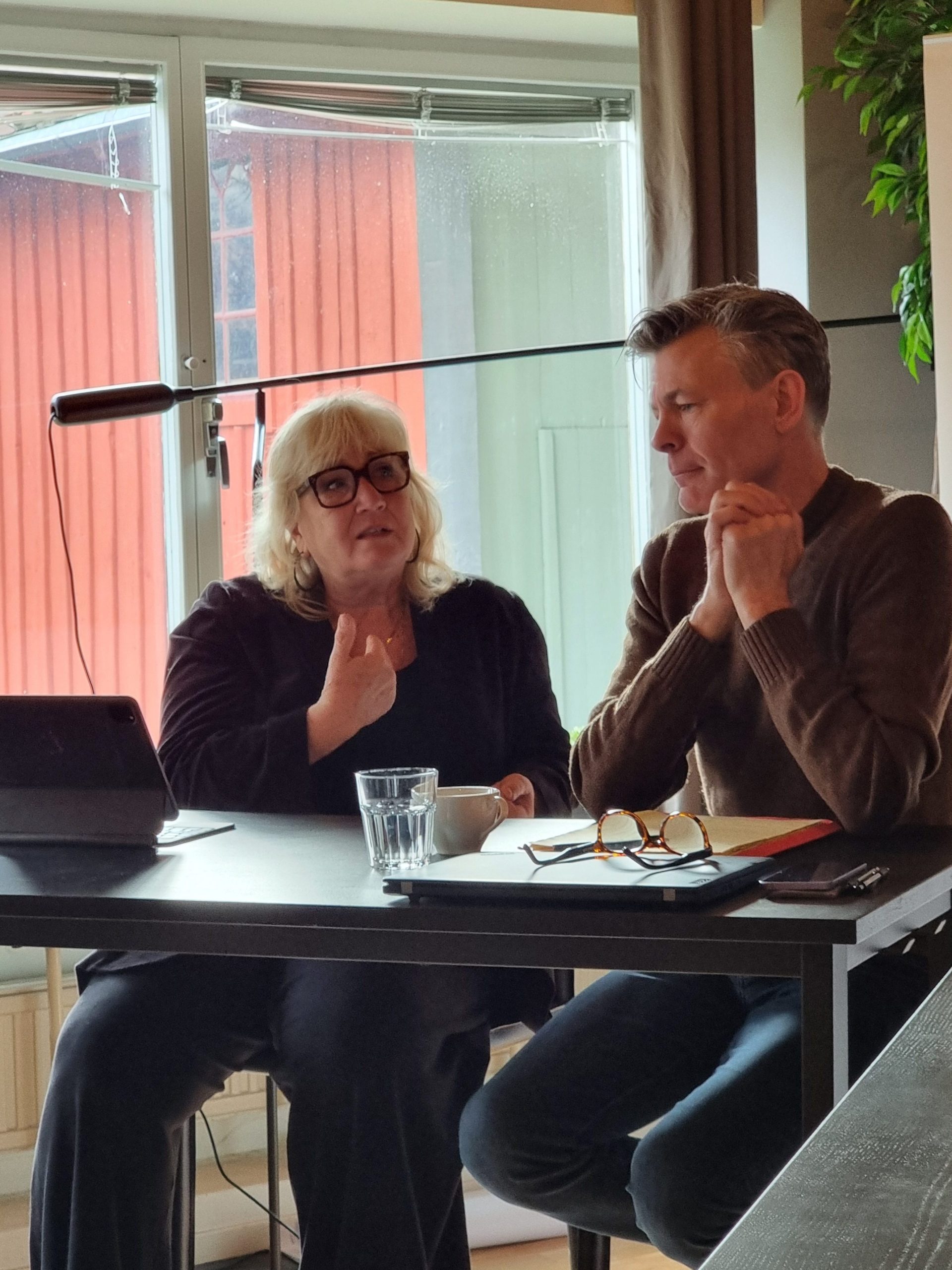
The global anti-wind movement and when graphs become stories
We learn from Tomas that international organisations work to influence the spread of wind power across Sweden. The organisations target people with false stories about the negative effects of wind power, prompting local citizens to call for a use of the municipal veto that allows municipalities to reject the establishment of wind power within their territories. “In the 2020s, between 60-75% of all windmills that were planned were stopped by the municipal veto, and this is before it is even possible to let the environmental impact assessments commence and find out whether the projects will have any negative impact on people and nature, which is the claim of the counteracting organisations”, Tomas says firmly. The accusations are false, and the delaying organisations spread fabricated facts to paint wind power as harmful and dangerous.
“When I became a mother, that’s when the emissions graphs became a story – my kids will be in their 30s in 2050 – that’s when it became relatable”
Sofia bernett, Stockholm resilience centre
Sofia’s story starts on the night of November 8th, 2016 when she goes into labour. She expects a baby girl on the day when she believes that the leader of the free world will be a woman for the first time in history. However, history wanted a different story, and she explains the mixture of immense love and fear she feels when her daughter is born to a world of Donald Trump in the White House. This prompts Sofia to leave her job in marketing and enter the world of climate science as a communicator, where she remains today.
Self-criticism, nuance, and living with multiple stories
Instead of presenting a solution, Mikael humbly asks the audience, who have been listening intently: “What do we do then? The focus of this conference is stories. What do these stories do?”. Mikael shares his uncertainty about the potential of counteracting bad stories with good stories, and turns to the audience to ask what they think we should do instead. This sparks an eager discussion involving the entire room. We share ideas, questions, concerns, and anecdotes. The round table quickly turns into an animated ping-pong match where everyone seems to be engaged.
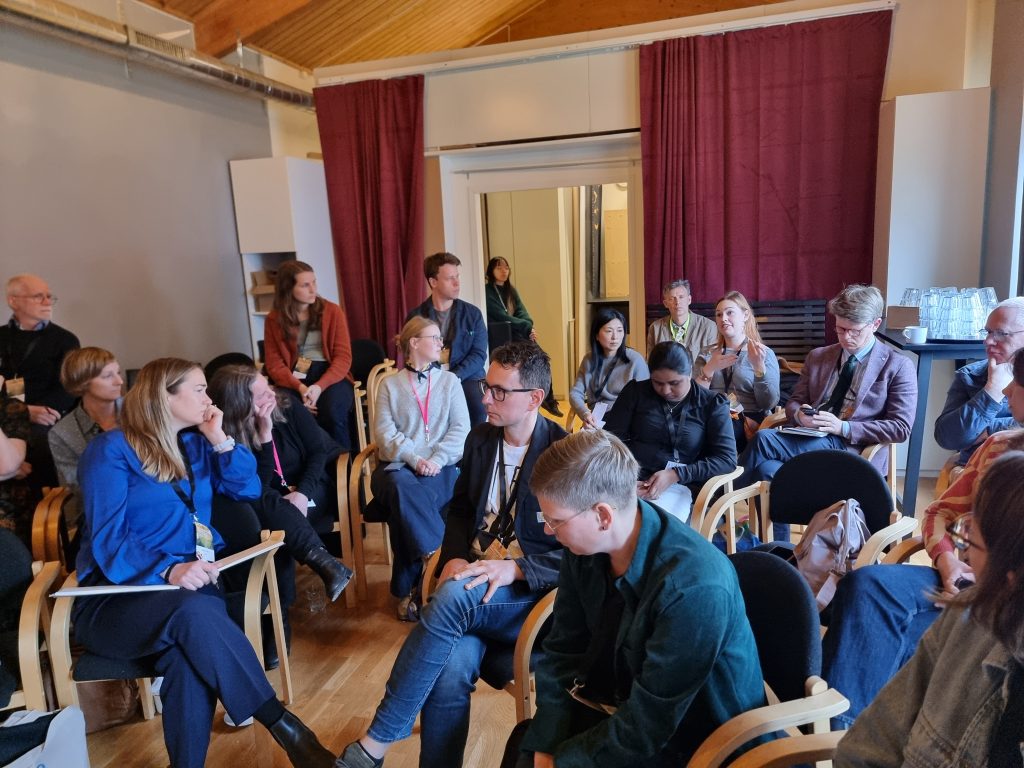
As the conversation continues, Erika calls for self-criticism, pointing to the obvious power held by many in the room, who have long shaped and still shape public debate. “We are former climate reporters and activists, where is the self-criticism? What did we do wrong?”. A concern is raised by Anke Fischer (SLU) that too little attention is paid to asking what causes these so-called false stories. Does the framing of stories as something snappy leave too little room for nuance or for changing our minds, she asks. The call for nuance is echoed by the conference keynote speaker, Michael Wilson. He stresses that people live with multiple stories, and asks whether the dichotomy between good and bad stories is useful.
Researchers’ role in storytelling for sustainability
“How can we in different ways make visible that we are very many people and organisations who still think these issues are important?”
Hanna Bergeå, Swedish university of agricultural sciences
Hanna’s question reflects the frustration that is shared in the room, as the discussion develops. Good examples are shared of how to create stories that reflect people’s realities. A single mother with low income might need to hear that climate policies will not disrupt her life. Whereas privileged men might become more engaged in climate action if they are told stories that explain how their identities are threatened by climate inaction, and thus provoked to reflect about what a good life entails for them.
We laugh, applaud, and frantically scribble notes whilst listening, and several questions are raised but left unanswered. Should we avoid the word ‘climate’ altogether? Do we need simple or complex stories? How can we make the silent middle speak up for climate action? The shared modesty of not knowing the right answer to these questions is seen as a potential to engage in a different kind of storytelling. To sum up, Mikael Karlsson asks the audience if one solution could be to continue the conversation: “Maybe an outcome of this talk can be to come together and study and explore how we can move this further?”. As the room empties and the brass bell sounds with its soft ringing sound to mark the end of the conference, it is clear that the story has not yet come to an end.
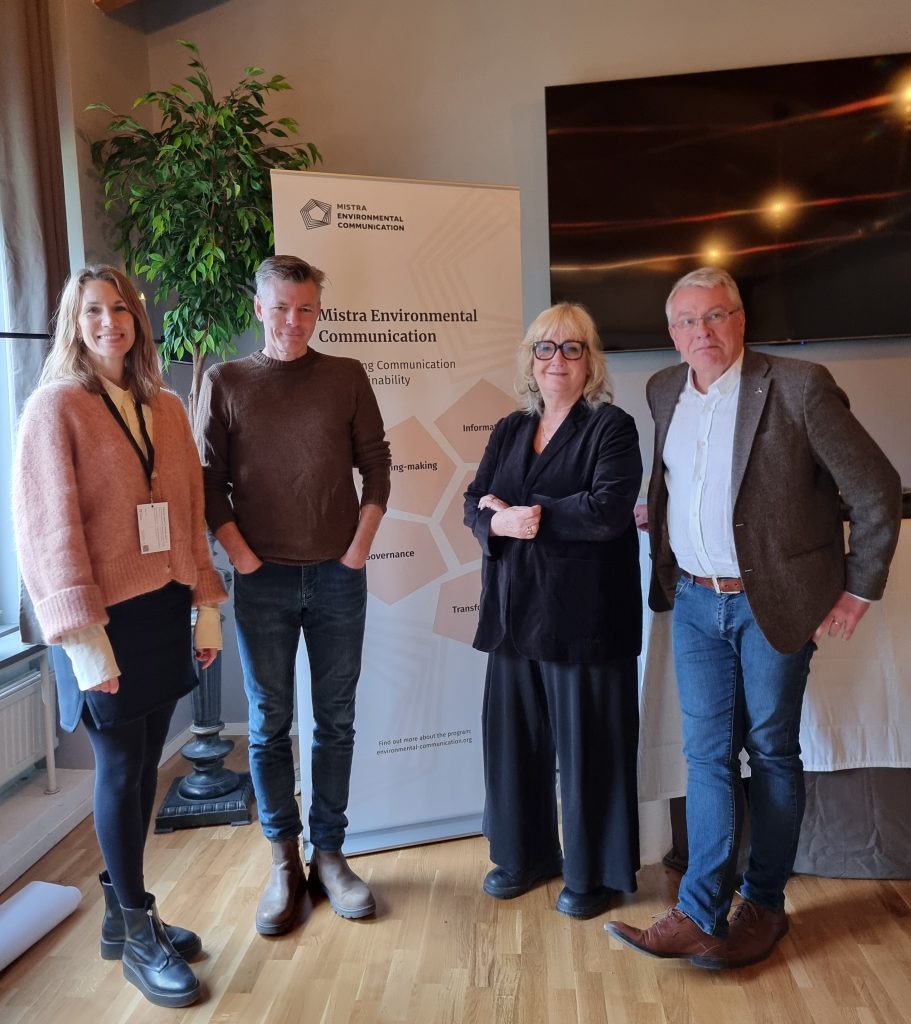
The critical and creative capacity of storytelling
Over the course of the two days, I attend seminars and workshops that approach storytelling from a range of perspectives. From creative presentations about the potential for personal transformation for sustainability through storytelling to the disarming capacity of presenting science as stand-up comedy. One workshop tries to unpack experiences of reciprocity and asymmetry in storytelling, and together with four people, we share our own experiences with the art of storytelling. Another workshop deals with the concept “collective loneliness”, where we discuss how we can overcome feelings of loneliness when working with sustainability issues. These workshops take place amidst sessions of meditation, art exhibitions, a drama workshop, and an escape room, as well as discussions of academic articles that touch upon the use of storytelling in various ways.
After two days in the historic quarters of Uppsala, I leave the conference and make my way back to my office and to CCL. I carry with me not just new ideas but newfound wonder over what stories the future will hold and our role as researchers to analyse, shape, and contribute to the ongoing conversation.

